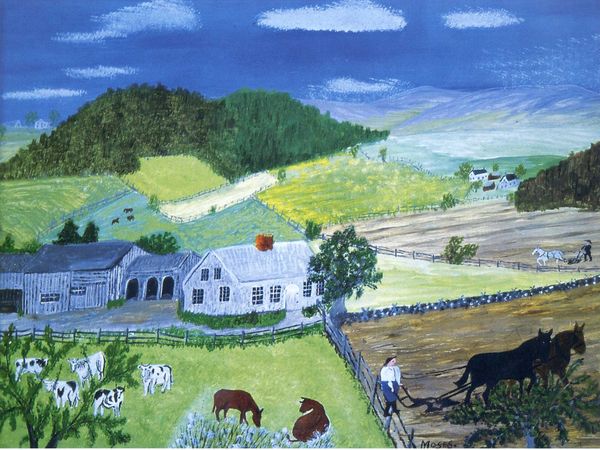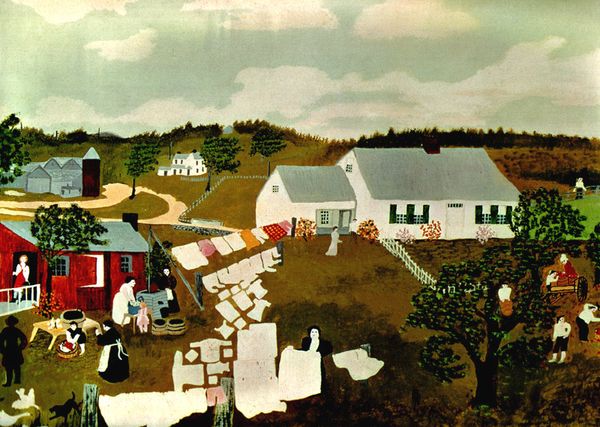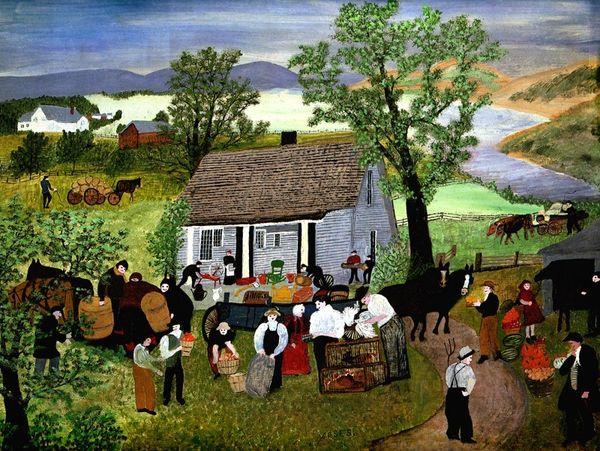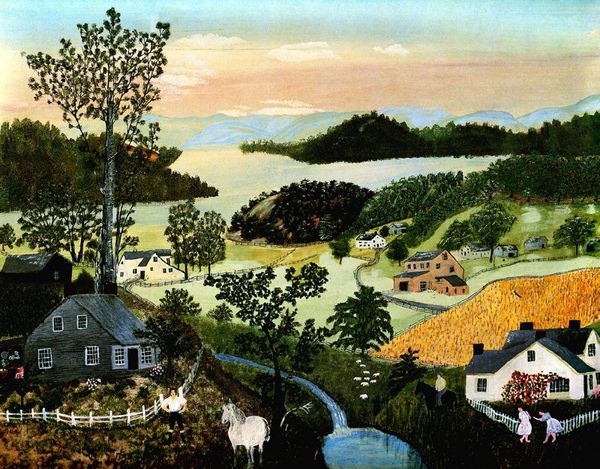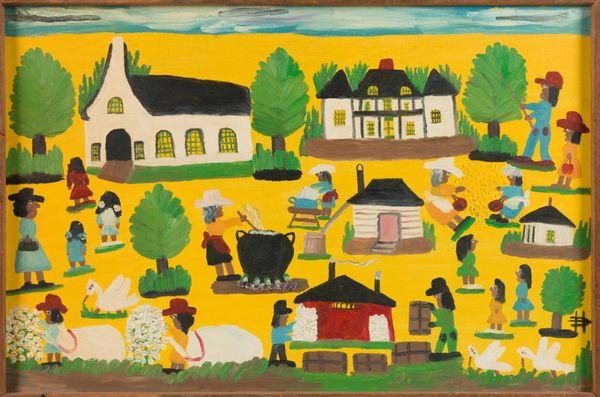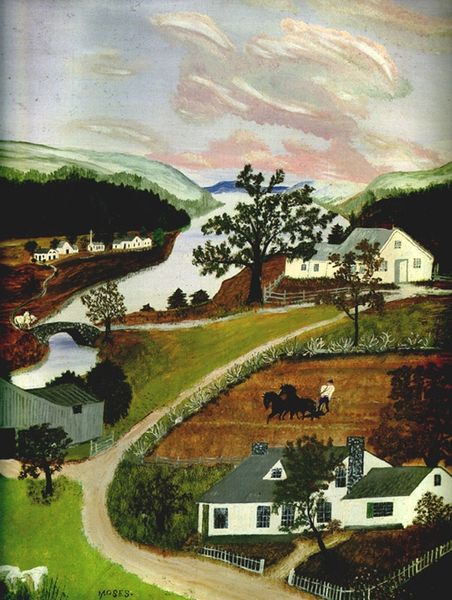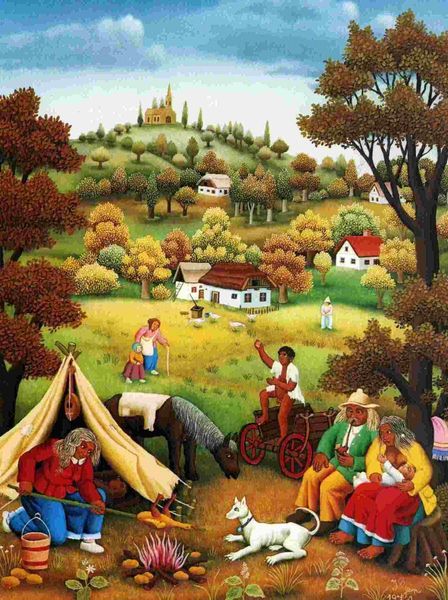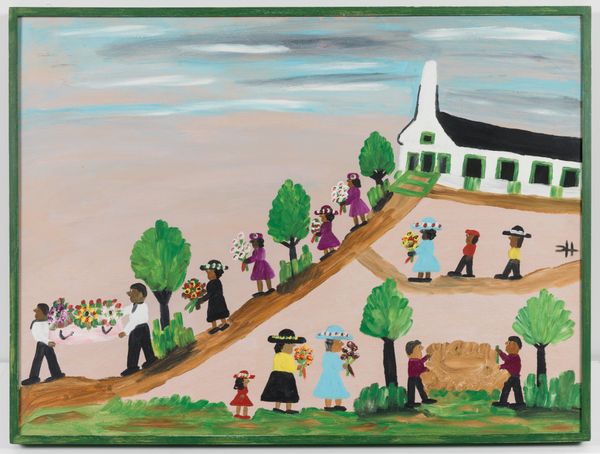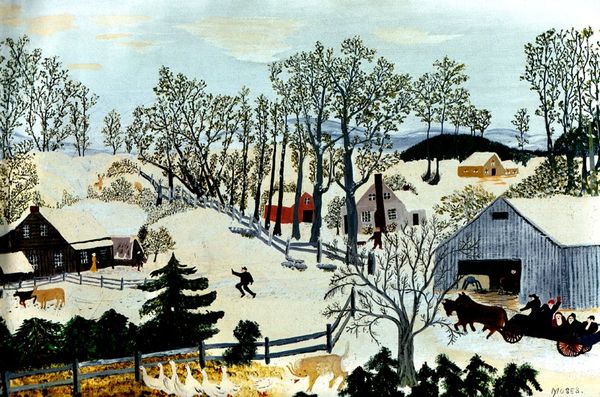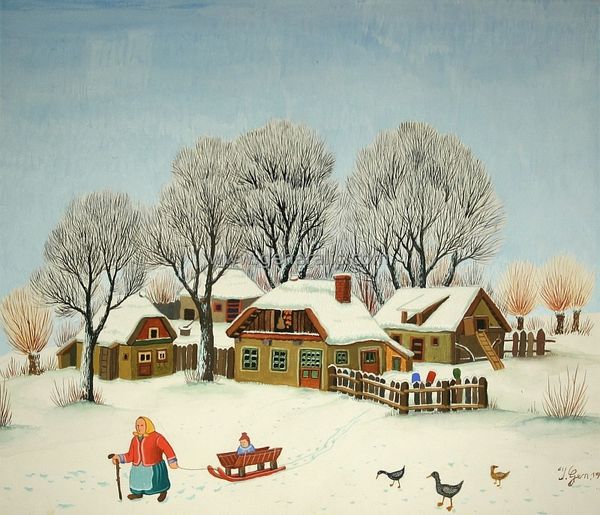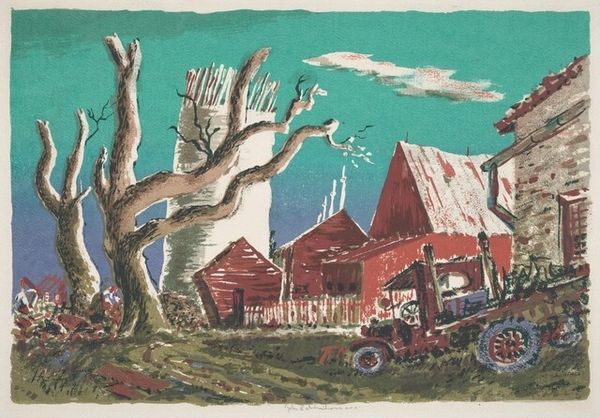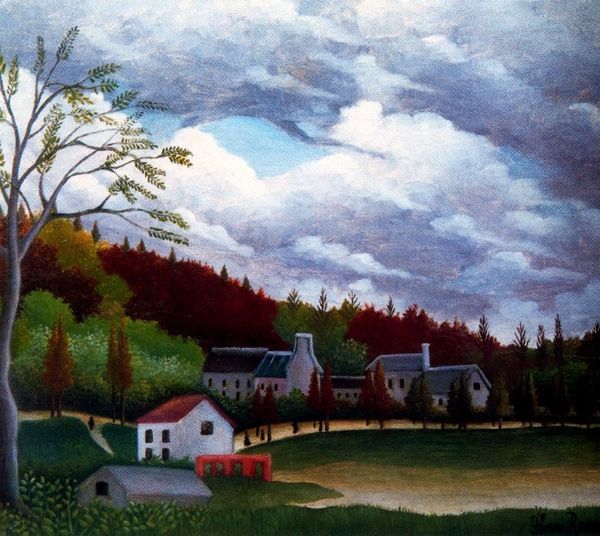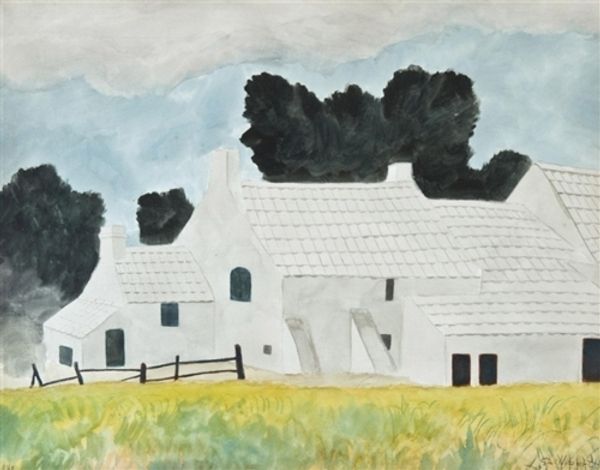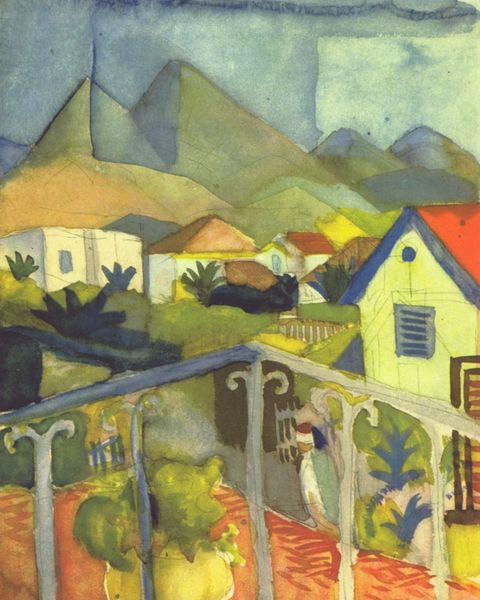
painting, oil-paint
#
painting
#
modern-moral-subject
#
oil-paint
#
landscape
#
folk-art
#
genre-painting
#
naturalism
#
regionalism
Copyright: Grandma Moses,Fair Use
Editor: So, here we have Grandma Moses’ "Taking in the Laundry" from 1951, an oil painting that just exudes… Americana, doesn't it? It's so busy, everyone hurrying against the impending storm. What do you see when you look at this piece? Curator: I see a world steeped in symbolism. The act of taking in laundry isn't just a chore; it's a race against nature's forces. Think of laundry as representing labor, community, even domestic harmony – all threatened by the storm, which symbolizes disruption and potential chaos. Does the movement in the trees speak to you? Editor: Absolutely! The way the trees are bent, almost dancing…there’s a real sense of urgency, like time is running out. And all that white linen contrasted against the gathering clouds... Curator: The white also reinforces a sense of purity, of domestic virtue striving to endure. Consider how folk art like this preserves cultural memory. We see the continuity of rural life, presented through a simplified yet evocative lens. How does this simplicity affect your reading of the scene? Editor: It makes it feel…almost timeless, in a way. Like this scene could be from almost any era, with a community facing down an imminent, collective challenge. But that horse and buggy do firmly root it to a specific time. Curator: Exactly. It invites us to reflect on how these elemental struggles – man versus nature, the preservation of home – remain consistent through changing times. And do not all memories change over time too, like folklore constantly changing with each telling? Editor: I hadn't considered how charged such an everyday activity could be. It is not only a record of time, but alludes to timeless human relationships to place. Curator: It speaks to the human desire for order amidst chaos, doesn't it? Even in fetching our drying clothes. Editor: Absolutely, seeing beyond just the act of taking in the laundry, to deeper symbolism of family life and memory makes it far more profound!
Comments
No comments
Be the first to comment and join the conversation on the ultimate creative platform.
